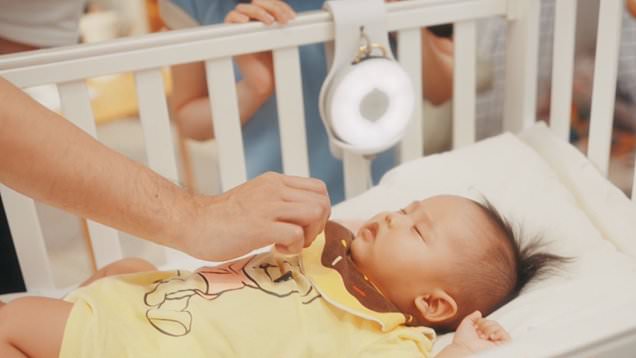
South Korea is planning to provide even more childcare and housing subsidies for new parents to combat the country’s rapidly crumbling fertility rate.
The proposed measures, introduced by the Ministry of Health and Welfare, seek to encourage more couples to raise children to improve the country’s low fertility rate. This low rate has been attributed to a variety of factors, including high housing costs, intense and expensive competition in children’s education and increasing gender tensions.
According to the ministry, under the new law, the government will offer cash incentives for childbirth, such as ?2 million ($1,521) for the first child, ?3 million ($2,282) for the second or subsequent children and ?5 million ($3,803) for twins.
The ministry will also be offering expanded parental leave benefits of six months off for both parents, doubling the previous allowance of three months in 2023.
Parents with children under one year old will also receive monthly stipends of ?1 million ($760) – up from ?700,000 ($532) a month – and ?500,000 ($380) for households with children between one and under two years old, up from ?350,000 ($266) a month.
Furthermore, the government will be providing subsidized mortgages with vastly lower interest rates to the parents of newborns to alleviate the burdens associated with housing expenses and to encourage young couples to consider starting a family. The Presidential Committee on Aging Society and Population Policy announced that more benefits and subsidized assistance policies will be unveiled in the coming months.
As a response to the national initiative, other local governments have already implemented their own programs to make childcare more affordable.
For instance, the city of Incheon has created a “100 million + 1 dream” support package with a total value of ?100 million ($76,000). Families with kids born in 2023 will be eligible to receive these packages up until their children turn 18. Last year, Incheon Mayor Yoo Jeong-bok increased the value of the subsidies by about $21,000 by providing families with more benefits, including subsidized transportation costs. Yoo claims these new benefits could even inspire the national government to provide an even more proactive birth policy.
South Korea has one of the lowest fertility rates in the world
Statistics Korea, the country’s national statistics agency, recently announced that the country had one of the lowest fertility rates in the world in 2022. The country’s birth rate that year was 0.78, slightly higher than the fourth quarter’s all-time low fertility rate of 0.7. The annual rate is also slightly lower than the rate of 0.81 recorded in 2021.
Based on these figures, the consequences of this continuous drop in fertility rate are far-reaching, with the number of children entering elementary school this year projected to fall below 400,000 for the first time.
The Bank of Korea, the country’s central bank, also issued a warning to the public that if current trends persist, the national economy will start shrinking by 2050 due to the retiring workforce and a projected slowdown in consumption.
Moreover, the central bank has also warned of national security concerns associated with low fertility, as the birth rate of North Korea is currently double that of the South. This could leave Seoul with an increasingly diminishing pool of people who could be conscripted for military service in case the country needs to respond to national threats militarily.
In a press conference in December 2023, presidential spokesperson and nominee to be minister of finance Choi Sang-Mok compared the situation to people on the Titanic watching the approaching iceberg. Choi believes it is too late to avoid a crash, estimating that it would take 30 years for current pro-birth policies to improve the fertility rate.
Choi warned that the country needs to prepare for potential worker shortages, lower tax revenues and increased welfare costs due to a rapidly aging population.
Lee Jae-woo, a professor at Inha University in Incheon, called for the government to propose more aggressive policies, including providing very affordable rental housing units for new parents and developing artificial intelligence-based tools as alternatives to expensive private tutoring – the costs of which sometimes exceed what families spend on food or housing.
“The government and society must make all efforts for our country to be reborn as a place that is good for raising children. If we don’t solve the problem of the low birthrate, South Korea will disappear,” Lee said.
RELATED ARTICLES
- Researchers Warn Vaping is just as Harmful as Cigarettes
- German School Bans Children from Drinking Water Because its Offensive
- Italy Fines TikTok with 10 million euros over Repeatedly Exposing Children to Indecent Content
- South Korea Issues Order to Assassinate North Korean Dictator Kim Jong-un
- Instagram Being Sued as a Hotbed for Child Exploitation and Pedophilia, Calls for International BAN











